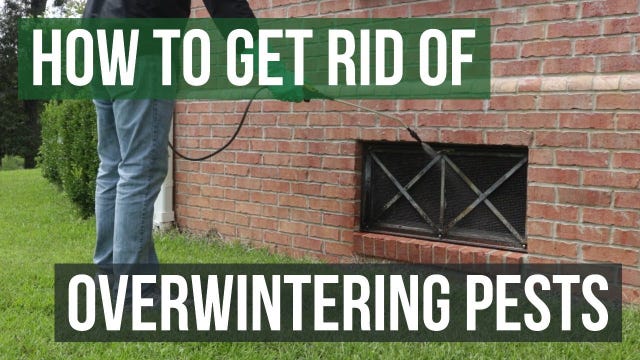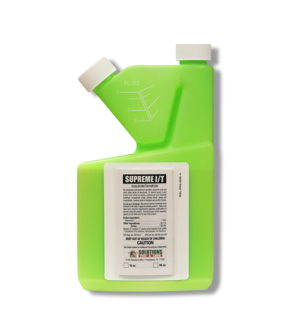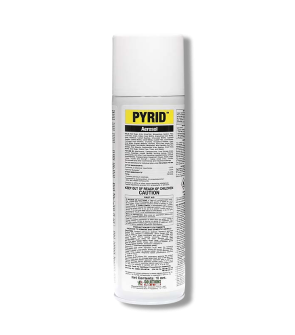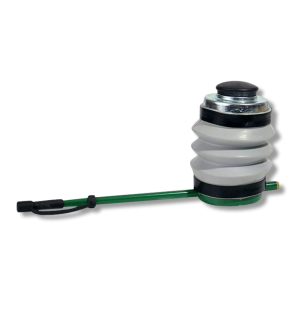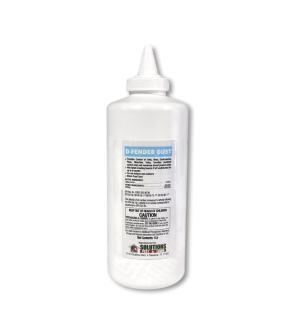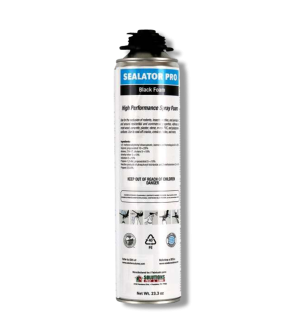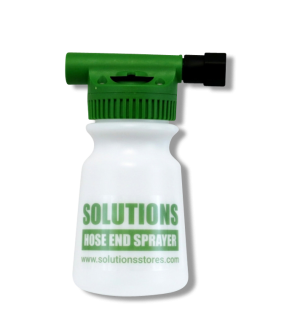Gain access to personalized product screening, the best pricing, rewards, and more!
Most Effective Products
Overwintering Pests Control: How To Get Rid of Overwintering Pests
This page is a general overwintering pest control guide. Using the products and methods suggested, you will get control of overwintering pests. Follow this guide and use the recommended products, and we guarantee 100% control of overwintering pests.
Overwintering pests are common in homes and businesses. They come in many sizes and shapes, from cluster flies to stink bugs to ladybugs to boxelder bugs there are many insect pests that enter inside homes and commercial buildings to find warmth during the winter.
Overwintering pests many times will be found on the outside of structures in early fall, but when the cold months arrive they relocate to the inside of homes by finding cracks and crevices on the foundation of the structure.
Just like all living things during the winter these pests must find shelter. While many times they can weather out the climate inside trees, rocks, and logs, our structures (buildings, houses) are very attractive and provide them with the shelter they need to survive the winter.
Overwintering pests are mainly nuisance pests that can invade in large numbers. These pests will often crawl out of their hiding spots during the beginning of spring or during a warm winter’s day and surprise homeowners with their sudden and unexpected appearance all over the house.
Identification
There are many types of overwintering pests and their size, color, shape, and species can vary. A quick way to identify them is by their infesting locations.

- Most Overwintering pests will be found indoors. Inside your home or buildings, you will find ladybugs, boxelder bugs, stink bugs, and cluster flies. While ladybugs, boxelder bugs, stink bugs, while usually appear out of the woodwork in early spring, cluster flies (who look like house flies but aren't attracted to decaying materials) can come out in the middle of winter on a warm day and can appear in large numbers “clustering” (as their name states) around windows.
- Outdoors in the late fall, you might find ladybugs, boxelder bugs, and stink bugs taking in the sun on the West and South facing walls of your structure. Ladybugs are easy to identify, they are circular with black dots on their red body. Boxelder Bugs are black with orange and red edges around their bodies, most commonly found close to Boxelder trees. Stink bugs emit a foul odor when threatened or crushed and have bodies that resemble shields.
If you cannot determine the exact species of overwintering pests you’re dealing with, then continue on with this guide; it will treat any outdoor or indoor overwintering pest infestation.
Inspection
Before beginning treatment, you need to know the areas where Overwintering pests are found or the cracks and crevices they might exploit to enter your structure.
During the inspection portion of this guide, you will focus on finding these areas where Overinwintering places are harboring and the cracks and crevices they used to get inside.
Where To Inspect
Outdoors, look in overhanging vents, loose chimney flashing, openings in walls, missing or damaged grates, missing or worn door seals, damaged or worn window screens, openings in electrical/plumbing penetrations, cracks in the foundation, seals around vents, missing screening in vents, and any possible crack crevice or opening outside your home. Indoors take a look inside any crack or crevice inside the structure, where these insects will come out of.
What To Look For
You’re looking for gaps, openings, slits, and cracks and crevices. Inspect all the places inside and outside your home listed above. If you find any openings, cracks, and crevices outside and inside your structure and any overwintering pests emerging from these places, this is where you will apply treatment.
Treatment
Once you have confirmed Overwintering pests entry points and activity it is time to being treatment. Remember to read all product labels and follow the application instructions on these labels and stay safe by wearing personal protective equipment (PPE).
Step 1: Outdoor Treatment
Begin treatment outdoors. You will use one product, Supreme IT. Supreme IT is labeled to treat more than 75 insect pests, and it both kills and repels insects. This product is perfect to drive away and kill any insect that might get close to your property. It also has residual control (or long-term effects) that will last up to 90 days.
Mix 1 ounce of Supreme IT with a gallon of water inside a pump sprayer. This application rate will cover 1,000 square feet.
You will do a perimeter treatment. To do this, you will spray 3 feet up and 3 feet out from the foundation of your structure. Apply in this manner all over the foundation of your structure while also targeting window frames, door frames, eaves, soffits, garage doors, rain gutters, electrical/plumbing penetrations, and any crack and crevice you found during your inspection.
Do not let people or pets enter treated areas until the spray has completely dried.
Step 2: Indoor Treatment
Now, you’re ready to apply treatment indoors. You will use two products, D-Fender Dust and Pyrid.
D-Fender Dust is great insecticidal dust that will quickly disperse and reach deep into hard-to-reach areas like wall voids, cracks, and crevices and has a residual of 8 months.
Pyrid will be used as a contact spray to kill any stragglers you might see around the home. It can also be used and sprayed directly into cracks and crevices.
D-Fender Dust
To use D-Fender Dust you will need a handheld duster. Fill the duster halfway with D-Fender Dust and leave lots of room for air to circulate inside.
Simply squeeze the duster to apply. Apply under appliances, behind baseboards, under sinks, in wall voids, behind electrical outlets (remember to turn off the breakers before applying and taking off the plastic lids, and apply to the sides of the metal casing if you have one), and in the attic and any crack and crevice found inside the home.
Pyrid
Pyrid comes in a ready-to-use aerosol can. Simply point and spray. Apply directly to any overwintering pests you might find around the home.
Prevention
Prevention is the final step for control. With overwintering pests, prevention is the best form of control.
- Start by addressing the small entry points, cracks and crevices, slits, and openings found on the outside of your structure. Use caulking, copper mesh, and our Solutions Sealator Pro Black Foam to seal and close off any cracks and crevices found on the outside of your structure. Fix or repair damaged screens or door seals.
- Add screening to vents. Trim back vegetation (including tree limbs that contact your roof) from your structure that insects might use to get close to your property.
- And finally, reapply Supreme IT every 3 months throughout the year, especially during the fall (or a month in advance before winter) to repel and kill any insects that might try to get inside.
Key Takeaways
What Are Overwinter Pests?
- Overwintering pests are insects that stay hidden throughout the colder parts of the year and reemerge in homes when temperatures begin to warm up.
How to Get Rid of Overwintering Pests
- When it comes to overwintering pests, sealing of any entry points and cracks and crevices is half the battle. Remember to also fix and repair weather stripping and window and door seals. Be sure to apply Supreme IT as well.
Prevent Overwintering Pest Reinfestations
- Apply Supreme IT throughout the year as a perimeter barrier around your structure, especially during the fall when the weather starts getting colder.
- And finally, and most importantly, remember to read all product labels and follow the application instructions on these labels, and stay safe by wearing personal protective equipment.






